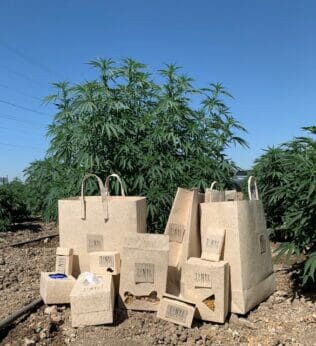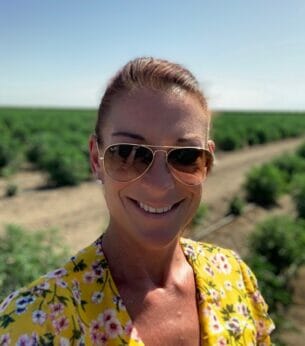Hemp growers say the social media giant’s advertising ban on certain products is stymying the nascent industry, with “incalculable” potential losses.

Sara Day Evans runs an agriculture-based business accelerator, Accelerating Appalachia, which supports dozens of farmers in one of the poorest parts of the country.
In June 2019, she wanted to boost the business of Kentucky Green Grass—a firm that sells CBD tinctures, among other products—so she placed an ad with the social media platform Facebook.
Kentucky Green Grass operates in compliance with all state and federal laws, but Facebook blocked the campaign, explaining in an email that it couldn’t advertise “illegal products.”
Facebook didn’t just deny Evans’s ad campaign. It also revoked all her promotional privileges for the other 50-plus businesses in the program, most of which have nothing to do with CBD. She was even blocked from posting an ad about a major grant awarded to her organization by the U.S. Department of Agriculture.
Evans pleaded with Facebook. She explained that hemp and CBD operations meeting federal standards were legal in Kentucky and that hemp was removed as a controlled substance following passage of the 2018 Farm Bill.
Facebook didn’t care.
“They kept sending me the same automated email,” said Evans.
Evans is one of about 30 hemp promoters who have been denied access to Facebook’s nearly three billion users, due to policies that appear to conflate hemp with marijuana. Both plants are from the cannabis sativa species, but hemp has negligible or no THC (Tetrahydrocannabinol), the psychoactive ingredient that provides the weed high. Furthermore, the hemp industry is highly regulated. Growers must be finger-printed and background checked. They must prove with testing that their products contain less than 0.3 percent of THC.
Nonetheless, Facebook disabled the accounts on the grounds that the hemp companies were selling “illicit or recreational drugs” or “other unsafe substances.” These were “determined by Meta [Facebook’s owner] at its sole discretion.” The shadow bans occurred three years before Meta announced a new policy in November 2021 that stated it was simply banning ingestible CBD. The same ad restrictions exist on Instagram, which is also owned by Meta.

The company Tiny e Paper was also barred from advertising on Facebook. Photo submitted by Erica Halverson.
The bans have created a barrier to one of the most potent marketing platforms in the world for small businesses. The blow to entrepreneurs trying to break into this growing green sector is “incalculable,” says Jody McGinness, executive director of the Hemp Industries Association (HIA).
“Since social media is the main source of information for consumers to make informed decisions, it’s bad for trade,” he says.
Meta spokesperson Rachel Hamrick declined to explain why the company vetoed ads for hemp products that had less than the legal 0.3 percent THC. She lumped CBD and marijuana into the same category, writing in an email that “at this time, we are not permitting the promotion of any CBD, THC, or cannabis products containing related psychoactive components.”
Hamrick also insisted that the Sara Day Evans account was operational. Only after an extended back and forth with this reporter, who showed screenshots that proved it had been blocked, did Hamrick capitulate and say that Meta would restore Evans’ promotional privileges.
Because so many other companies have experienced the same frustrations, a year after hemp became legal, the HIA ran an information campaign highlighting Facebook’s shadow ban, including a billboard on Times Square for six months.
It didn’t make a dent, says Andrew Bish, president of the Hemp Feed Coalition, an advocacy group. “When asked about bans on hemp, Facebook will typically point to its policy, then use the policy as the justification for their actions, whether their actions actually align with their policy,” he says. The ban also creates a problem for producers of hemp grain, as it is ingestible just like CBD, he adds. “Even though most hemp seed products contain little or no cannabinoid content, this is at the discretion of Facebook to decide whether to allow advertising, and usually, the answer is no.”
Even if you follow its rules, there’s no guarantee Meta will approve an ad.

Erica Halverson. Photo submitted.
Erica Halverson, founder and CEO of Tiny e Paper, based in Long Beach, California, makes paper out of hemp stalks and extracted CBD waste. There’s hardly any THC and the products are not ingestible.
She grows hemp in her front yard and posted pictures of her plants on her Facebook page. Facebook disabled it in 2021. She then created an Instagram page. Facebook told her to take it down and create a new one. She removed pictures of the plants. This third page got shut down, too. “They told me that because the new page resembled the old one it couldn’t run,” she says. “I can’t even get them to tell me what community standards I violated. “
Hamrick declined to comment on her case.
Other hemp entrepreneurs have resorted to driving traffic to landing pages on Facebook that don’t promote CBD products but simply mention the benefits, putting the focus on education rather than sales.
Ultimately, some businesses have given up on Facebook altogether and have turned to LinkedIn, Google and Twitter instead. On Jan. 20, Google relaxed its ban on advertising of CBD in California, Colorado and Puerto Rico. On Feb 15, Twitter became the first social media company to allow cannabis ads in the U.S. It previously only permitted advertising for hemp-derived CBD topical products.
Hemp promoters hope that Meta will come around, too. Hamrick made no promises. “We will continue to assess the market and adjust our policies, as appropriate.”
Keep the news coming, whether it’s good or bad